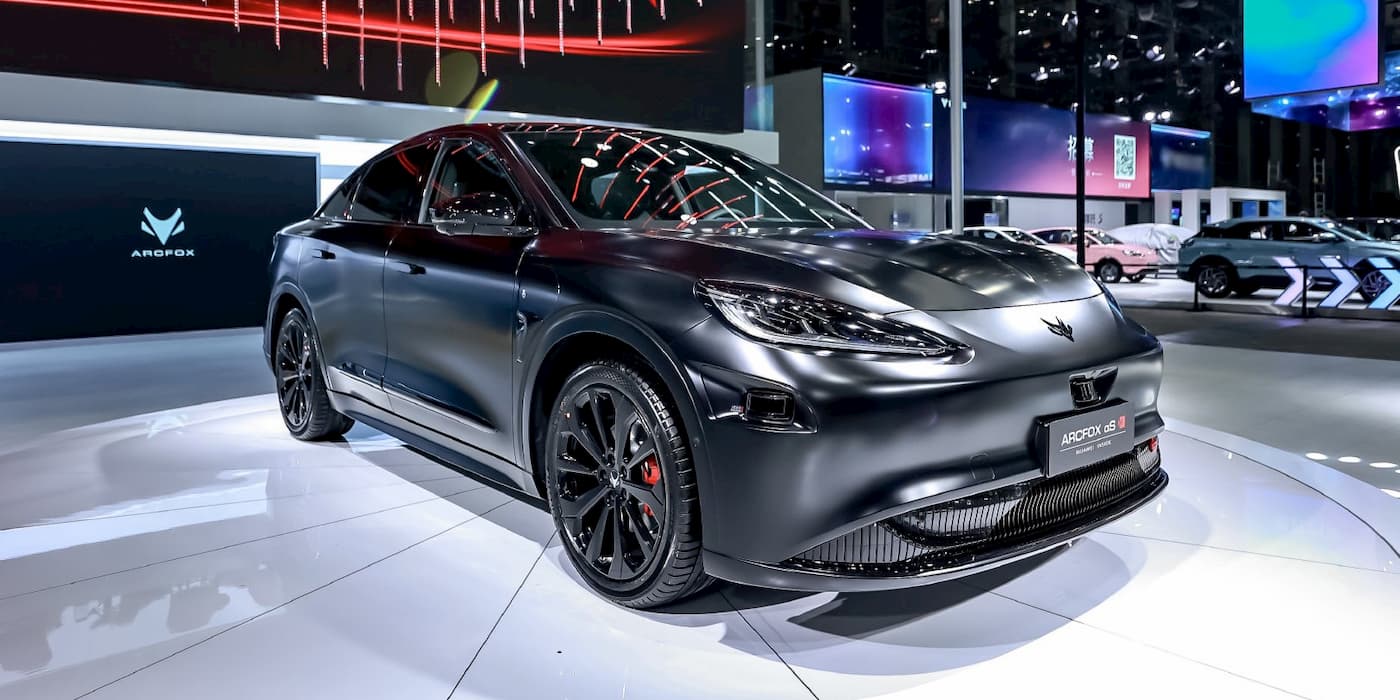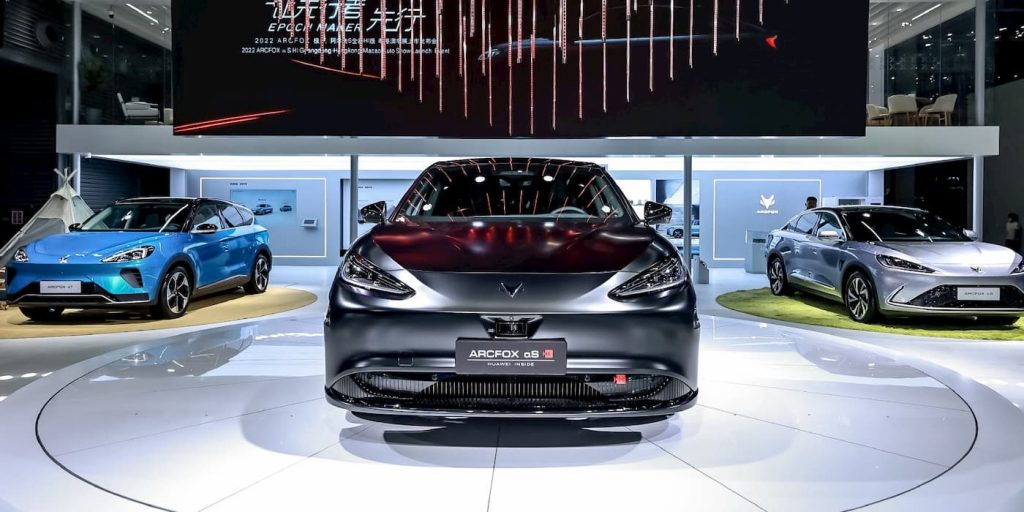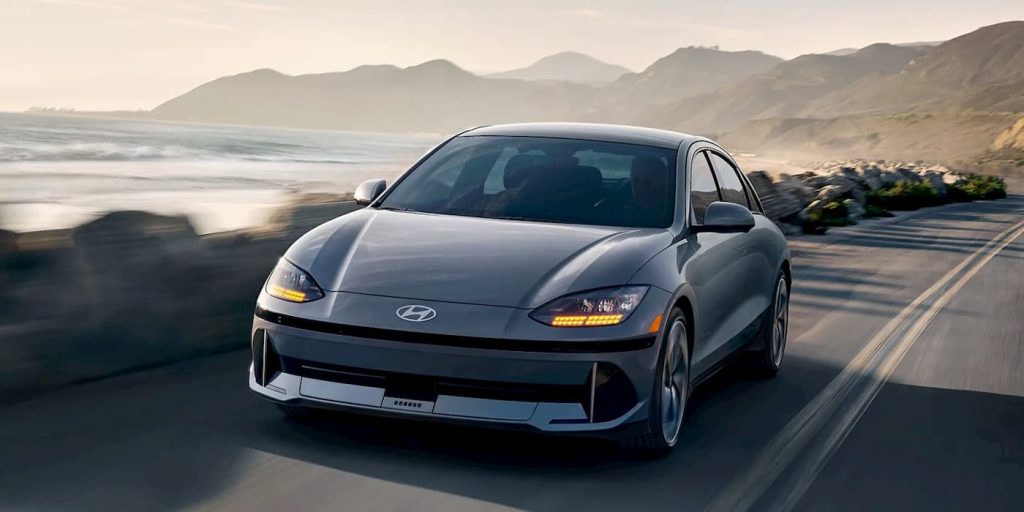Hyundai to build Tesla knockoff for Chinese EV maker Arcfox


South Korean automaker Hyundai Motors plans to build EVs under the brand Arcfox, a Chinese electric car company co-owned by BAIC Motor Corp.
Hyundai and BAIC agreed to build Arcfox EVs at the South Korean automaker’s Beijing plant, according to a new report from the Korean Economic Daily Global.
Established in 2017, Arcfox is a 50-50 joint venture between Hyundai and BAIC. The electric car brand has several models in production, including the Alpha-S.
The Arcfox Alpha S looks like a cross between the Tesla Model S and Hyundai’s IONIQ 6. Arcfox released a new “HI” version as its first EV powered by Huawei technology that looks even more like a Tesla.
Industry sources said discussions are still ongoing Wednesday. If true, it would be the first time Hyundai produces EVs under a foreign brand.
The move comes as Hyundai looks to turn things around in the world’s largest EV market. Hyundai’s market share in China has fallen from a peak of 7% to less than 1% last year, with only 254,000 units sold.
Beijing Hyundai posted an operating loss of around $598 million (800 billion won) last year as the automaker struggles to gain traction.

Hyundai to build Arcfox EVs to regain China market share
Hyundai hopes manufacturing EVs under a new brand can help spark life into the brand. “The cooperation suggests Hyundai has yet to give up on the Chinese market,” one of the sources said. They added, “Hyundai is trying to rebuild a bridgehead for expansion in the country by establishing an EV production line.”

The automaker has struggled in the region since 2017 over tension between Beijing and Seoul. With only electrified versions of gas-powered cars available (no dedicated EVs), local drivers have opted for better options.
Reports suggested Hyundai was looking to launch its dedicated IONIQ EV lineup in China but decided against it due to competition with BYD and others.

The move to produce Arcfox EVs could help Hyundai get a foot in the door in China. Hyundai will likely design, build, and conduct quality control at its No. 3 plant in Beijing.
The South Korean automaker has already sold one of its five factories in China to Li Auto in 2021.
City Dwellers’s Take
Although Hyundai has recently gained some traction in China, with sales up 9% through the first eight months of 2023, it will take more to regain meaningful market share.
China’s EV market is becoming more competitive, with new domestically produced models from automakers like BYD, NIO, and Li Auto taking market share from once-dominant legacy automakers.
Volkswagen, Toyota, and other automakers are experiencing similar situations. VW also decided to partner up to regain market share in China. The company invested $700 million for a roughly 5% stake in XPeng.
FTC: We use income earning auto affiliate links. More.